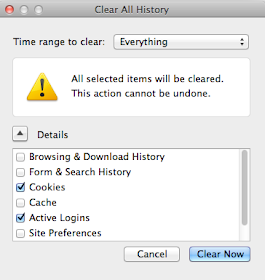Downloading it first to your laptop and moving it then to the server is one option, which works ok if you are on the same network as the server. However with having a lot in the cloud it would be far easier to download the software directly on the server (as the server is already connected to the internet).
If I was running a graphical interface on the server, which I'm not, I could have used a browser. I could also have used lynx, a text based browser. My experience with lynx isn't that great, for example when I had to login and the site used javascript things got messed up or were not working. Probably I did something wrong or didn't have enough experience using it.
The way I download for example Oracle software straight into the server is by using wget.
As you can only download Oracle software after you are logged in, I had to do an additional step to get wget working.
These are the steps I followed:
- Open Firefox and install the Expert Cookies add-on. That tool allows you to download the cookies of your pc into a text file.
- Clear all cookies (Tools - Clear Recent History... - Select Cookies and click the Clear now button)

- In your browser on your pc login to the Oracle website and/or depending the software you need on edelivery.oracle.com. Logging in will set a cookie.
- With the Expert Cookies add-on you can now download the cookies of your pc (Tools - Export Cookies ...) and save the file to your filesystem

- Upload that file to your server
- Now you can run the wget command from the server to download the software you want :-)
For example to download Apache the command looks like:
wget --load-cookies=cookies.txt http://download.oracle.com/otn/linux/ias/101350/ias_linux_x86_ccd_101350_disk1_1of3.zip
great tip Dimitri!
ReplyDeleteThanks
Flavio
wget is very handy :-)
ReplyDeleteIn the past I've used a similar trick and referenced the live cookies.txt stored in the browser's profile but it seems with modern browsers they're no longer stored like that.
Respective technology and entertaintment blog it is.Reading this kind of article is worthy .It was easy to understand and well presented.Above all the points are explained very clearly,.Website Hostings
ReplyDelete